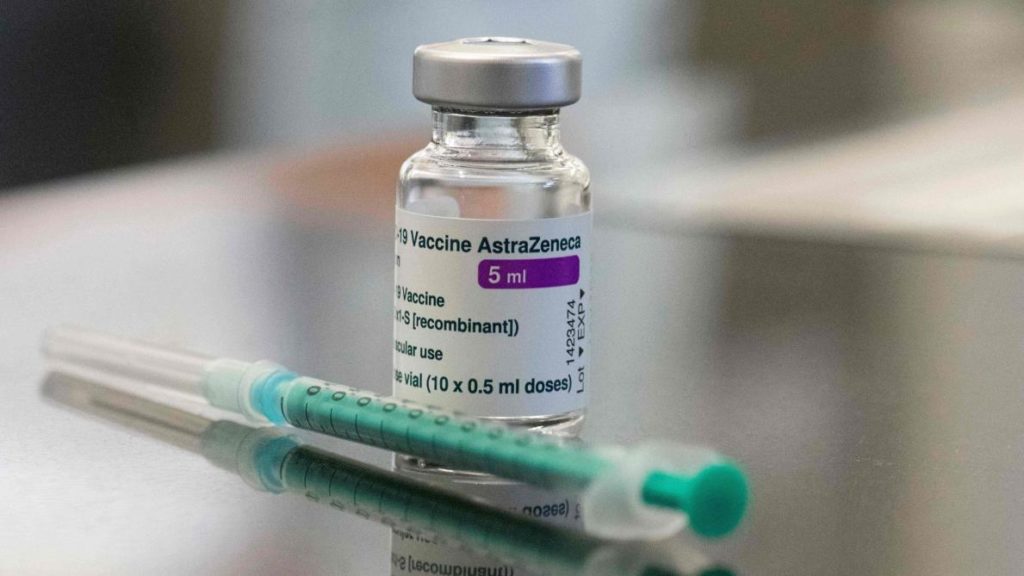The European Medicines Agency (EMA) advises to continue using the AstraZeneca coronavirus vaccine, the agency announced during a press conference on Thursday.
Following a new thorough evaluation by the EMA's expert committee, the conclusion remains that the AstraZeneca vaccine is safe and effective, according to EMA's Executive Director Emer Cooke.
"Its benefits in protecting people from Covid-19, with the associated deaths and hospitalisations, outweigh the possible risks," she said.
The committee also concluded that the vaccine is not associated with an increased risk of blood clots.
"During the review, we began to see a small number of cases of rare and unusual, but very serious clotting disorder, and this then triggered a more focused review," Cooke said. "Based on the evidence available, and after days of analysis of lab results, clinical reports and further information, we still cannot definitively rule out a link between these cases and the vaccine."
The Committee recommends raising awareness of these possible risks, and drawing attention to them.
"About 7 million people in the EU have now been vaccinated with the AstraZeneca vaccine, and 11 million have been vaccinated in the UK, and there is increasing use in other countries," she said. "It remains important that all side effects are closely monitored and reported."
"We are very much aware that some Member States have paused vaccinations waiting for EMA's outcome of a review," Cooke said. "And given that thousands of people in the EU die every day, and we made this review our highest priority."
EMA highlights that a situation like this is not unexpected. "When you vaccinate millions of people, it is inevitable that rare or serious instances or illnesses in the time immediately following vaccination," she added.
Related News
- Vaccines can't replace lockdowns and curfews yet, WHO says
- Blood clots: What are they and why are they a problem?
- AstraZeneca: Belgium wants Europe's growing vaccine surplus
Additionally, there is no evidence of a problem related to specific batches of the vaccine or to particular manufacturing sites, according to Sabine Straus, chair of the Pharmacovigilance Risk Assessment Committee (PRAC).
"Overall, the number of thromboembolic events reported after vaccination, both in studies before licensing and in reports after rollout of vaccination campaigns, was lower than that expected in the general population," she said.
However, EMA recommends adding a patient leaflet with the necessary information about the symptoms and possible risks.
Straus wants health professionals and the general public to be made aware of the signs and symptoms that can indicate thrombosis. "There is no conclusive evidence that the rare cases of brain thrombosis are not due to the vaccine."
"As of yesterday evening, seven cases of cerebral thrombosis and 18 cases of thrombosis in combination with a shortage of platelets have been reported. Out of a total of 20 million vaccinated people, this is very little," she added.
"However, it seems that women, and especially young women, are affected by the brain thrombosis after vaccination with AstraZeneca, but in most countries, more women got the jab," Straus said. "That could also be an explanation."
Straus also referred to the high proportion of women among healthcare workers who are vaccinated earlier in the vaccination campaign.
She underlined that the contraceptive pill, independently of vaccination or Covid infection, is also a risk factor for brain thrombosis, and that smoking is a risk factor for thrombosis in general.
"The PRAC will gather more information, including on the medical background of the patients, and continue to monitor the case closely," she said.
Additionally, the Committee will continue to review these risks, including looking at the risks with other types of Covid-19 vaccines, although no signal has been identified from monitoring so far.
"Close safety monitoring of reports of blood clotting disorders will continue, and further studies are being instituted to provide more laboratory data as well as real-world evidence."
"We are still in a pandemic," said Cooke. "We have safe and effective vaccines. We have to use them."
More information from EMA's latest evaluation of the AstraZeneca vaccine can be found here.
Maïthé Chini
The Brussels Times

